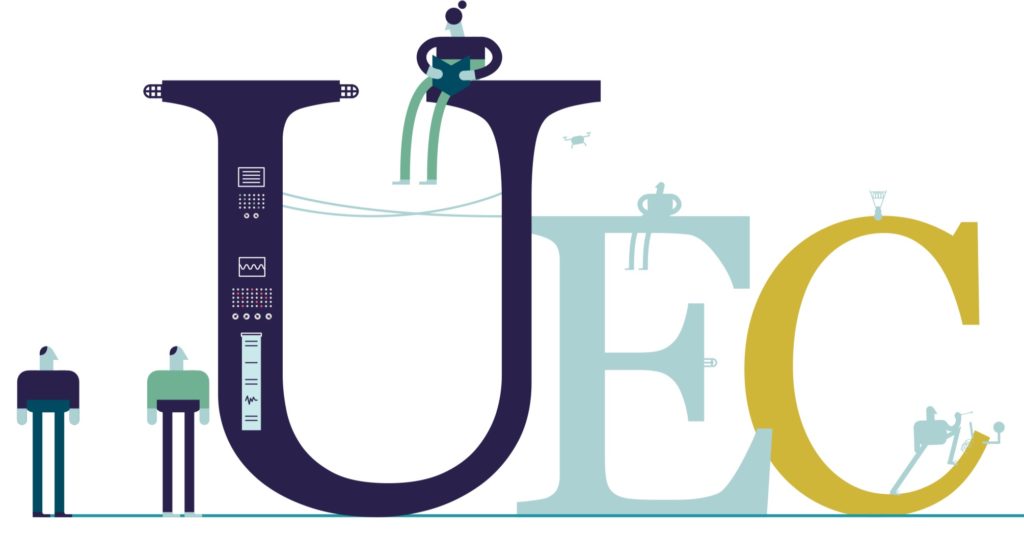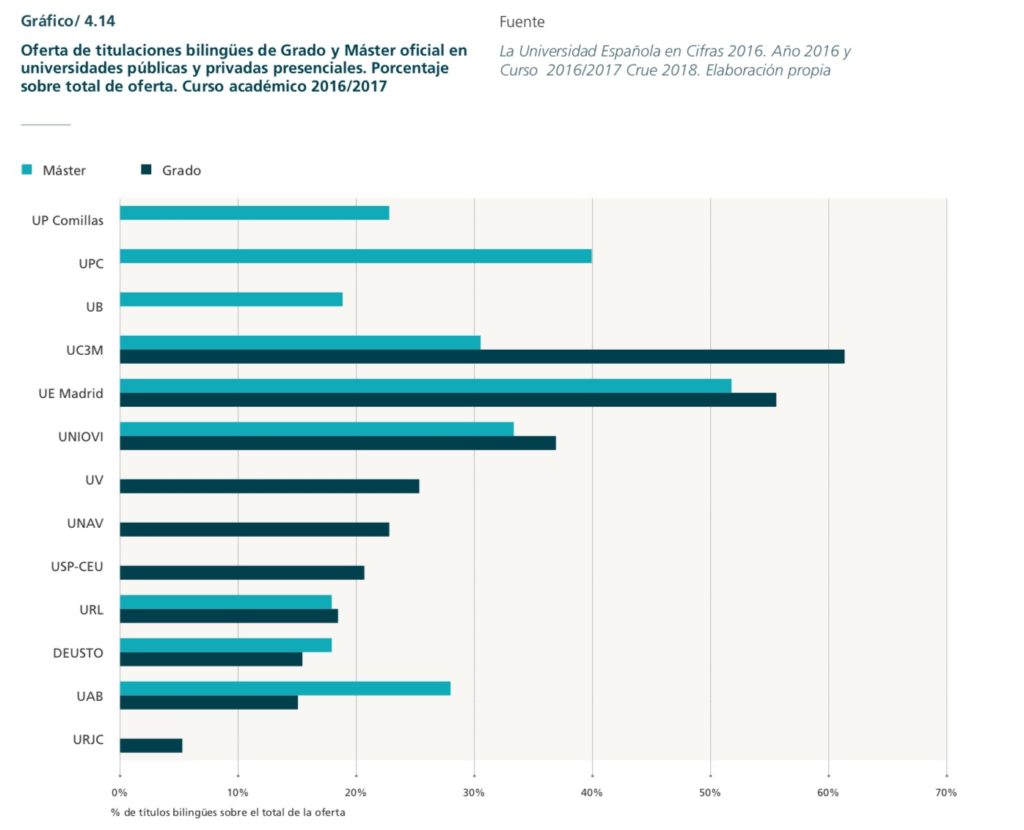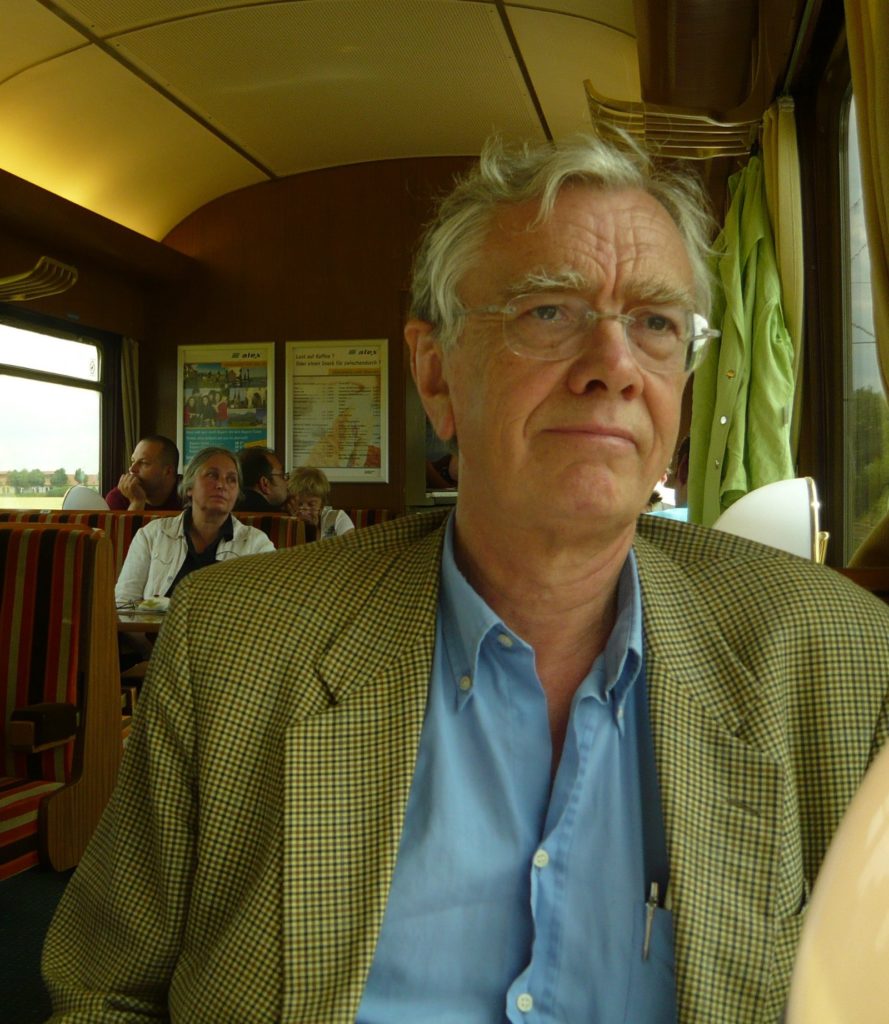
Acaba de publicarse el documento de la CRUE sobre la Universidad española correspondiente al curso 2016-2017.
Esto es lo que incluye sobre enseñanzas “bilingües” (p.115 del mencionado informe):
4.04 La impartición de titulaciones oficiales de Grado y Máster en lenguas extranjeras es todavía muy reducida en la oferta de las universidades españolas.
En el curso académico 2016/17, las universidades públicas presenciales impartieron el 7,5% del total de su oferta de enseñanzas de Grado en régimen bilingüe, mientras que en las Universidades privadas presencia- les, la participación de la oferta bilingüe de enseñan- zas de Grado fue del 17,8%.
La rama de Sociales y Jurídicas concentra el mayor porcentaje del total de las titulaciones bilingües en las universidades privadas (53%), en tanto que, en las universidades públicas, la rama de Artes y Humanidades es la que presenta un mayor porcentaje sobre el total de las titulaciones bilingües (36,4%).
Las titulaciones de las ramas de Salud y Ciencias son las menos representadas en el conjunto de las ofertas de Grado bilingües de las universidades públicas y privadas presenciales.
Señalar que, a pesar de su reducida dimensión, tanto las universidades públicas como las privadas muestran un acusado dinamismo en la implantación de esta modalidad de enseñanzas que se hace patente en aumentos del 24,6% y 95% con relación a las ofertas del año anterior.
A nivel institucional, la Universidad Carlos III de Madrid (61,4%), de las universidades públicas; y la Universidad Europea de Madrid (55,7%), de las universidades privadas, son las que han ofertado un mayor nivel de enseñanzas de Grado en régimen bilingüe en el curso académico 2016/17 (ver Gráfico/ 4.14).
Para las enseñanzas de Máster oficial, la presencia en el curso académico 2016/17 de las enseñanzas bilingües fue del 10,4% y del 14,3% del total de la oferta en las universidades públicas y privadas presenciales, respectivamente.
Por ramas de enseñanza, destacan las titulaciones de Sociales y Jurídicas (56,9%) e Ingeniería (31,9%) del total de la oferta de las universidades privadas, mientras que en las universidades públicas se observa una distribución más homogénea entre las diferentes ramas de enseñanza, siendo las titulaciones de Ciencias con el 25,2% y Artes y Humanidades con el 15,9% del total de la oferta bilingüe la de mayor y menor participación, respectivamente.
A nivel institucional, la Universidad Europea de Madrid lidera la relación con el 51,8% del total de su oferta en régimen bilingüe, seguida por la Universitat Politécnica de Catalunya con el 40% del total de su oferta impartida en la modalidad bilingüe en el curso académico 2016/17 (ver Gráfico/ 4.14).





